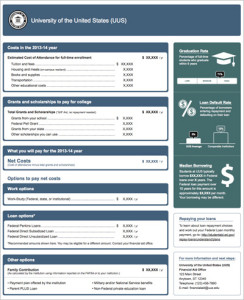You can use Google as a search tool to help you write your essays, and you can manipulate it to save your time, effort and hard work. If you are smart about it, you can cobble together an essay fairly quickly if you use Google. Once you have the raw materials from Google, you can start refining the work, altering the flow and making sure it is correctly weighted, checked and correct.
Run a Google Search for Other Essays
http://tinypic.com/r/2z6ds3o/8
The trick is to copy and paste your questions into the Google search engine. It will kick up any other essays that have been written on the subject, along with blog posts and journals that may answer your questions.
The truth is that many professors use the same questions over and over again, especially if they are listed in the textbooks, and many students upload their work to the Internet or sell it when they finish college. You can take advantage and look up what other people have written.
Don’t copy it verbatim, but make note of their better points and take a look at their reference sections to see if there are any good research materials you can use.
Use Google Scholar for Ready-Made Citations
http://tinypic.com/r/102umpk/8
Having to write out your reference section “correctly” is boring and annoying, even if you have a good citation generator. Instead, search Google scholar for the reference material you are using (books, journals, etc). If it is listed on Google scholar, you can click the cite link and copy and paste a ready-made citation. It saves time and a lot of effort.
Use the Index Section at the Bottom of Wikipedia Pages
http://tinypic.com/r/2lto8s5/8
On almost every subject you can research, you will find an entry on Google for a Wikipedia page. You are not allowed to reference Wikipedia in your essay because it is not considered reliable. However, some of the links and references at the bottom of the individual Wikipedia pages are very credible. Follow them and they may lead you to some great research material. They may also give you references you can add in to your essay.
For example, if you have just made a point, you may find a similar point made on Wikipedia. If it has a number next to it, which is a link to the reference, you can click on it and copy the reference to prove your point (as it echoes the one on Google).
Use Other People’s Ideas Online
http://goodmenproject.com/wp-content/uploads/2015/02/CoupleWorkingHome.jpg
When you Google the questions on your essay, don’t just look at journals and other essays and such. Search around people’s opinions and thoughts on the subject and topic. Use them to spur your creativity and expound on their ideas making them your own.
Search for Proof after You Have Made Your Point
The usual routine is to find, think up an idea, research it, find proof and turn it into a point or argument that you put in your paper. This is all fair and good, but there are many times when you know you are right and you can turn your idea straight into a point that you enter and expand upon in your essay.
The trouble is that at this point you have no evidence to back up your point or even to back up your idea. You are not going to get top marks if you cannot nail down every point with suitable evidence. So, all you do is search for the evidence after you have made and expanded upon your point.
Search out similar points in other people’s work and see whom they referenced, then verify those references. Just make sure that the point that person is making is very similar to yours and that the reference is suitable.
++++++++++++++++++++
Today’s guest author is Linda Craig, a writing enthusiast and a professional editor at assignment help http://www.assignmentmasters.co.uk. Her passion is modern British Literature and digital education tools












 Taking a Different Approach
Taking a Different Approach